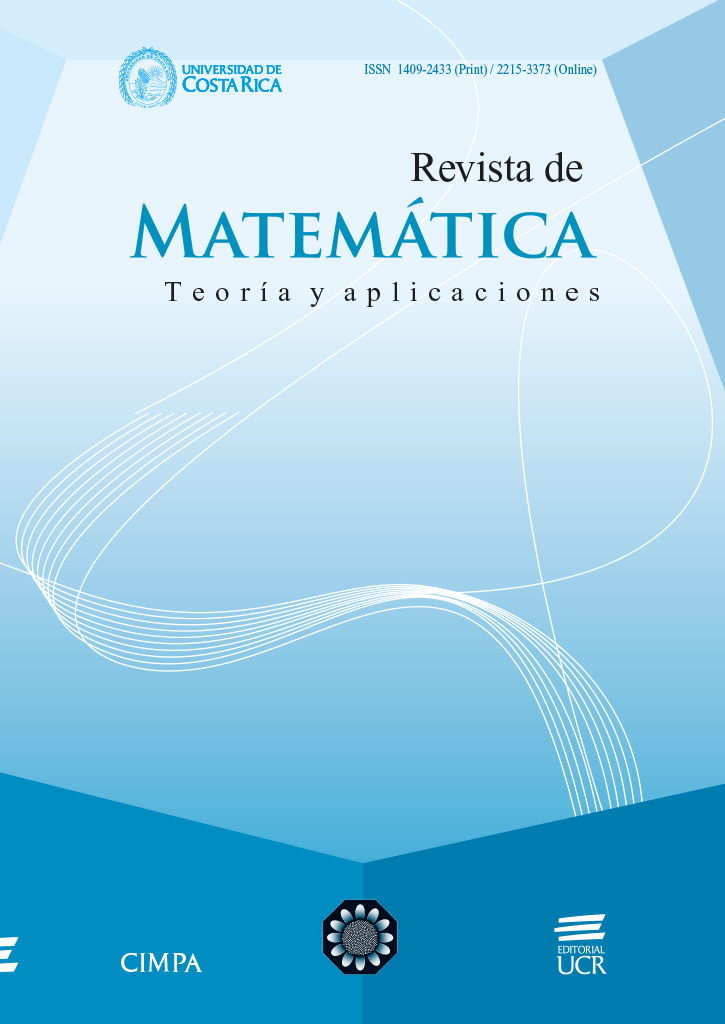Abstract
Despite their widespread use in advanced analytical and numerical techniques, gradient field methods are often underrepresented in the foundational training of economists and social scientists. As machine learning and sophisticated analytical and numerical approaches gain traction, the importance of gradient methods in optimization processes becomes increasingly apparent. This oversight in academic and practical toolsets is suboptimal. This paper aims to address this gap by introducing gradient field methods both intuitively and rigorously, situating them within the context of problems commonly encountered by economists and social scientists, with a particular focus on equality constrained optimization.
References
S. Athey, The Impact of Machine Learning on Economics. The Economics of Artificial Intelligence: An Agenda. University of Chicago Press, 2019, 507–547. doi: 10.7208/chicago/9780226613475.003.0021
S. Athey, G.W. Imbens, Machine Learning Methods That Economists Should Know About. Annual Review of Economics 11(2019), 685–725. doi: 10.1146/ annurev-economics-080217-053433
A. Belloni, V. Chernozhukov, C. Hansen, High-dimensional methods and inference on structural and treatment effects. Journal of Economic Perspectives 28(2014), no. 2, 29–50. doi: 10.1257/jep.28.2.29
D. Bertsekas, Nonlinear Programming. Athena scientific optimization and computation series. Athena Scientific, 2016. doi: 10 . 1057 / palgrave . jors .2600425
C. Bishop, Pattern Recognition and Machine Learning. Information Science and Statistics. Springer New York, 2016.
J. Bonnans, J. Gilbert, C. Lemarechal, C. Sagastizábal, Numerical Optimization: Theoretical and Practical Aspects. Universitext. Springer Berlin Heidelberg, 2013. doi: 10.1007/978-3-540-35447-5
S. Boyd, L. Vandenberghe, Convex Optimization. Cambridge University Press, 2004. doi: 10.1017/CBO9780511804441
V. Chernozhukov et al., Double/debiased machine learning for treatment and structural parameters. The Econometrics Journal 21(2018), no. 1, C1–C68. doi: 10.1111/ectj.12097
A. Chiang, K.Wainwright, Fundamental Methods of Mathematical Economics. McGraw-Hill international edition. McGraw-Hill Education, 2005.
J. Duchi, E. Hazan, Y. Singer, Adaptive Subgradient Methods for Online Learning and Stochastic Optimization. Journal of Machine Learning Research 12(2011), no. 61, 2121–2159.
I. Goodfellow, Y. Bengio, A. Courville, Deep Learning. Adaptive Computation and Machine Learning series. MIT Press, 2016. doi: 10.1007/s10710-017-9314-z
J. Grimmer, M. E. Roberts, B. M. Stewart, Machine learning for social science: An agnostic approach. Annual Review of Political Science 24(2021), 395–419. doi: 10.1146/annurev-polisci-053119-015921
M. Hoy et al., Mathematics for Economics, third edition. The MIT Press. MIT Press, 2011.
W. Karush, Minima of Functions of Several Variables with Inequalities as Side Conditions. G. Giorgi, T. H. Kjeldsen (Eds.). Traces and Emergence of Nonlinear Programming. Springer Basel, Basel, 2014, 217–245. doi: 10.1007/978-3-0348-0439-4 10
D. P. Kingma, J. Ba, Adam: A method for stochastic optimization. arXiv preprint arXiv:1412.6980 (2014). doi: 10.48550/arXiv.1412.6980
J. Kleinberg, J. Ludwig, S. Mullainathan, C. R. Sunstein, Discrimination in the Age of Algorithms. Journal of Legal Analysis 10(2019), 113–174. doi:10.1093/jla/laz001
H. Kuhn, A. Tucker, Nonlinear Programming Proceedings of the Second Berkeley Symposium on Mathematical Statistics and Probability. 1951.
R. P. Masini, M. C. Medeiros, E. F. Mendes, Machine learning advances for time series forecasting. Journal of economic surveys 37(2023), no. 1, 76–111. doi: 10.1111/joes.12429
S. Mullainathan, J. Spiess, Machine learning: an applied econometric approach. Journal of Economic Perspectives 31(2017), no. 2, 87–106. doi: 10.1257/jep.31.2.87
J. Nocedal, S.Wright, Numerical Optimization. Springer Series in Operations Research and Financial Engineering. Springer New York, 2006. doi: 10.1007/b98874
S. Noy, W. Zhang, Experimental evidence on the productivity effects of generative artificial intelligence. Science 381(2023), no. 6654, 187–192. doi: 10.2139/ssrn.4375283
D. Rolnick et al., Tackling climate change with machine learning. ACM Computing Surveys (CSUR) 55(2022), no. 2, 1–96. doi: 10 . 1145 / 3485128
S. Ruder, An overview of gradient descent optimization algorithms. arXiv preprint arXiv:1609.04747 (2016). doi: 10.48550/arXiv.1609.04747
C. Simon, L. Blume, Mathematics for Economists. Norton, 1994.
H. R. Varian, Big data: New tricks for econometrics. Journal of economic perspectives 28(2014), no. 2, 3–28. doi: 10.1257/jep.28.2.3
Comments

This work is licensed under a Creative Commons Attribution-NonCommercial-ShareAlike 4.0 International License.
Copyright (c) 2024 Sergio Pernice





